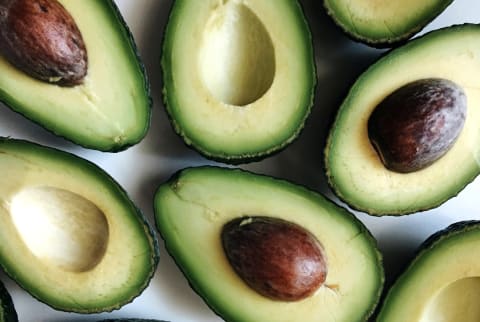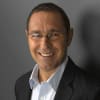Advertisement
Your Mitochondria Are As Important As Your Microbiome. Here's How To Optimize


Let's start with the basics: What exactly are mitochondria?
The mitochondria are power plants in the cell that turn your food and oxygen into energy in the form of ATP. These mitochondria power the biochemical reactions in your cells. To me, they are the Western equivalent of chi, or energy. I believe the mitochondria are often the mechanisms by which a lot of our lifestyle changes, like supplements, sleep, exercise, etc., work.
How do mitochondria affect how we're actually feeling on a day-to-day basis?
Think of them as energy factories—when a factory slows down its production or there aren't enough raw materials to produce everything, you'll get less production from the factory. If your mitochondria aren't working properly, you're going to get less from your body and brain, and you're going to feel more tired. You'll age quicker. Mitochondria are also thought to play a role in a lot of the age-related diseases, like heart disease, diabetes, and neurogenerative diseases. If your mitochondria aren't functioning optimally, you'll feel like you're aging too quickly and you'll feel tired.
Is there a way to test if our mitochondria are working optimally? How do we know if we need to do work on them?
There's no real measurement of mitochondrial function yet, although there will be soon. I always say, though, that it's similar to your gut bacteria. Everyone can benefit from taking care of their gut health—in the same way, everyone can benefit from taking care of their mitochondria. The microbiome and mitochondria are the two key areas to improve function, because those are two major areas where function decreases and it leads to all sorts of symptoms but also leads, down the road, to various diseases. I recommend all people focus on improving their mitochondria and microbiome.
How do we eat to optimize our mitochondria?
The No. 1 thing is to quit eating sugar and grains, because they turn to sugar in the bloodstream. Mitochondria do better functioning off healthy fats, like sardines, walnuts, avocado, coconut oil, and MCT oil. You want to eat high-fat and low-carb, because the mitochondria use fatty acids or carbohydrates to create the ATP, but if you give them more fat and less carbohydrate, you'll have less free radicals formed. You also want to eat lots and lots of colorful vegetables, because the more phytonutrients you have to nourish your body, the more you will nourish your mitochondria as well. We also know some veggies, like sulfur-rich veggies (cauliflower, cabbage, etc.), are good for producing glutathione, a powerful antioxidant that's good for the mitochondria.
I'm a big believer in the mitochondria and microbiome as the two key functions for longevity.
What happens if you're eating high-fat—adding avocado and MCT to your smoothie—and you're still having an occasional bagel for breakfast or pizza at dinnertime?
If you're eating both high-fat and high-carb, your cells are going to go for the carbs first, so you're going to have excess carbs or insulin and excess fat, leading you to actually become heavier. If you don't have the carbs, your body will process the fats. The mitochondria do better on fatty acids than carbohydrates, but they will go for the carbohydrates first if given the option.
Can you ever take a break, or do you need to be strict all the time?
My whole philosophy is that health is not just about what you eat—it's about your community, the love in your life, spending time in nature, how you're moving, and more. If you go on vacation, enjoy your vacation! If you're in Italy, eat pasta. Being obsessive about your food is not healthy, but being healthy about it most of the time is important. Actually creating long-term daily habits is the most important thing.
What are some non-food-related things that help mitochondria?
Exercise, especially HIIT, and strength training has been shown to increase the number of mitochondria. Sleeping is also important. We have a glymphatic system, a waste-removal system of the brain, and it only works when you're sleeping—if you're not sleeping, it's not working, so you'll build up more toxins, which will inhibit mitochondrial function. Meditation improves mitochondrial function, as does being in the sun, intermittent fasting, taking cold showers. Supplements can be really helpful for mitochondria: I like coenzyme Q10, alpha lipoic acid, glutathione, magnesium, fish oil or krill oil, and PQQ. I take almost everything I mentioned—as we're getting older, our mitochondrial numbers decrease. I'm a big believer in the mitochondria and microbiome as the two key functions for longevity.

For Dr. Frank Lipman, health is more than just the absence of disease: it is a total state of physical, mental, emotional, spiritual and social wellbeing. Dr. Lipman is a widely recognized trailblazer and leader in functional and integrative medicine, and he is a New York Times best-selling author of five books, How to Be Well, The New Health Rules, Young and Slim for Life, Revive and Total Renewal.
After his initial medical training in his native South Africa, Lipman spent 18 months working at clinics in the bush. He became familiar with the local traditional healers, called sangomas, which kindled his interest in non-Western healing modalities
In 1984, Lipman immigrated to the United States, where he became the chief medical resident at Lincoln Hospital in Bronx, NY. While there, he became fascinated by the hospital’s addiction clinic, which used acupuncture and Chinese medicine making him even more aware of the potential of implementing non-Western medicine to promote holistic wellbeing.
He began studying nutrition, acupuncture, Chinese medicine, herbal medicine, functional medicine, biofeedback, meditation, and yoga. Lipman founded the Eleven Eleven Wellness Center in 1992, where he combines the best of Western medicine and cutting edge nutritional science with age-old healing techniques from the East. As his patient, chef Seamus Mullen, told The New York Times, “If antibiotics are right, he’ll try it. If it’s an anti-inflammatory diet, he’ll do that. He’s looking at the body as a system rather than looking at isolated things.”
In addition to his practice, he is also an instructor in mbg's Functional Nutrition Program.
More from the author:
Functional Nutrition Training
Check out Functional Nutrition Coaching
A cutting-edge nutrition deep dive taught by 20+ top health & wellness experts
Learn moreMore from the author:
Functional Nutrition Training
Check out Functional Nutrition Coaching
A cutting-edge nutrition deep dive taught by 20+ top health & wellness experts
Learn more
For Dr. Frank Lipman, health is more than just the absence of disease: it is a total state of physical, mental, emotional, spiritual and social wellbeing. Dr. Lipman is a widely recognized trailblazer and leader in functional and integrative medicine, and he is a New York Times best-selling author of five books, How to Be Well, The New Health Rules, Young and Slim for Life, Revive and Total Renewal.
After his initial medical training in his native South Africa, Lipman spent 18 months working at clinics in the bush. He became familiar with the local traditional healers, called sangomas, which kindled his interest in non-Western healing modalities
In 1984, Lipman immigrated to the United States, where he became the chief medical resident at Lincoln Hospital in Bronx, NY. While there, he became fascinated by the hospital’s addiction clinic, which used acupuncture and Chinese medicine making him even more aware of the potential of implementing non-Western medicine to promote holistic wellbeing.
He began studying nutrition, acupuncture, Chinese medicine, herbal medicine, functional medicine, biofeedback, meditation, and yoga. Lipman founded the Eleven Eleven Wellness Center in 1992, where he combines the best of Western medicine and cutting edge nutritional science with age-old healing techniques from the East. As his patient, chef Seamus Mullen, told The New York Times, “If antibiotics are right, he’ll try it. If it’s an anti-inflammatory diet, he’ll do that. He’s looking at the body as a system rather than looking at isolated things.”
In addition to his practice, he is also an instructor in mbg's Functional Nutrition Program.

















